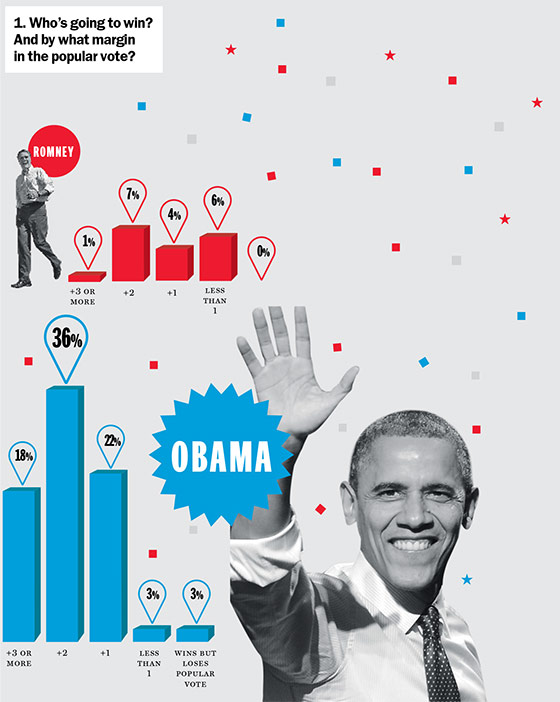From the get-go, Michelle Obama had made it plain that she didn’t want Barack to run for president. She was wary beyond words, for a long time refusing to discuss the concept, even with her closest friends. The citation of spousal hesitation is, of course, a timeworn trope in American presidential politics. Every male candidate loftily affirms that he couldn’t possibly go ahead without his wife’s full support, but as a matter of course, Y-chromosome ambition trumps X-chromosome reluctance. Really, it’s no contest.
But with Barack and Michelle, it was. Obama adored his wife, genuinely believed she was his better half, that he’d be lost without her. He didn’t even bother to pretend that he enjoyed anyone else’s company remotely as much as he relished being with her and their daughters. As the midterms approached, he told his advisers more than once, I’m not doing this if Michelle’s not comfortable, and she’s certainly not there yet.
She had always been a gut-level skeptic about the gaga-ness around her husband. In the wake of the drooling adulation poured on him after his convention speech, she suspected that he would be treated like “the flavor of the month,” a passing fancy soon discarded by a fickle political culture. As she watched people fawning over him at his swearing-in to the Senate, she said dryly to a reporter, “Maybe one day he’ll do something to merit all this attention.”
She had no doubt that day would come. Her confidence in Barack was profound and unshakable. But in the meantime, she was perfectly miserable with him being in the Senate. The Robinson family had been close-knit: a homemaker mother, a municipal-employee father, and a basketball-star brother who ate dinner every night together with her in a one-bedroom brick bungalow on the South Side of Chicago. They were immersed in one another’s daily lives, the highs and lows, the successes and traumas of childhood and adolescence. She wanted that badly for her daughters, too, and she wasn’t getting it. She hadn’t signed up for a commuter marriage. She was laboring to make it work, but when she was being honest, she admitted that she hated it; she was lonely too much of the time. There had been strains in their marriage back in 2000, when Barack had run unsuccessfully for Congress. Now she was being asked to talk about his running for president—and it felt like the rug was about to be pulled out from under her even more violently than it had been already.
One night midway through 2006, over a four-hour dinner with Jarrett, Michelle let her frustrations pour out. “This is hard,” she said. “Really hard.” Jarrett decided not to even mention the presidential chatter. Michelle was in a bad place emotionally. No point in making it worse.
But following the midterms, Michelle had no choice but to grapple with the subject. After that first November meeting in Axelrod’s office, the Obamas, Jarrett, and Marty Nesbitt went for dinner at Coco Pazzo, an Italian joint they loved. Michelle was going on and on about her issues. She had a lot of questions—and also a lot of fears. She’d been worried about Barack’s safety since he entered the Senate. Now he would be an even bigger target, and so would she and the girls. Could the campaign keep their family safe?


